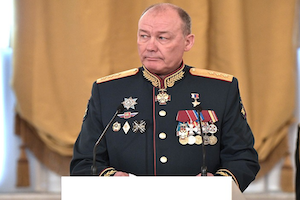Nagorno-Karabakh: The Democratization of Precision Strike and the Viability of Military Power
By Jack Watling
March 25, 2021, the CACI Analyst
The six-week Nagorno-Karabakh war, fought through the Autumn of 2020, may have been principally of local significance politically, but highlights changes in the viability of the use of force as an instrument of statecraft in a new era of great power competition. Extrapolation from the conflict should not be taken too far, but the democratization of precision strike and the constraints imposed on the use of air power pose serious questions for many European medium powers.

Amid Rising Crises, Turkmenistan Strengthens its Military and International Outreach
By John C. K. Daly
November 19, 2020, the CACI Analyst
The year 2020 is proving to be inordinately arduous for Turkmenistan, inflicted with a multitude of problems including the Covid-19 pandemic, plummeting natural gas prices and increasing concerns about rising violence in neighboring Afghanistan. Complicating the Turkmen government’s response to these crises is the country’s relative isolation imposed by its internationally recognized policy of strict neutrality. Given the transnational nature of these issues, the Turkmen government is fitfully readjusting its domestic and foreign policies to cope, as the threats are both internal and regional. The Turkmen government is increasingly aware that Turkmenistan cannot unilaterally resolve these threats and is attempting to devise international outreach programs for assistance, a significant deviation from its previous isolationist nationalist policies.

Russia's Military Capabilities in the Caspian
By Nurlan Aliyev
February 21, 2019, the CACI Analyst
On December 5, 2018, Colonel-General Alexander Dvornikov, commander of the Southern Military District (SMD), stated that the basis of an inter-forces troop contingent including sea, air and coastal components has been established in Dagestan. According to Dvornikov, fighters of the 4th Army Air Force and the SMD’s Air Defense have been put on alert at one of Dagestan’s airfields. Strengthening its high precision strike capabilities in the Caspian, Russia also intends to improve its ability to block the Basin to outside actors in support of its strategies regarding the Caucasus, Central Asia and the Middle East. The Caspian holds immense strategic value to Russia, given its geographical proximity to the Black Sea and the Sea of Azov.




 Silk Road Paper S. Frederick Starr,
Silk Road Paper S. Frederick Starr,  Book Svante E. Cornell, ed., "
Book Svante E. Cornell, ed., "